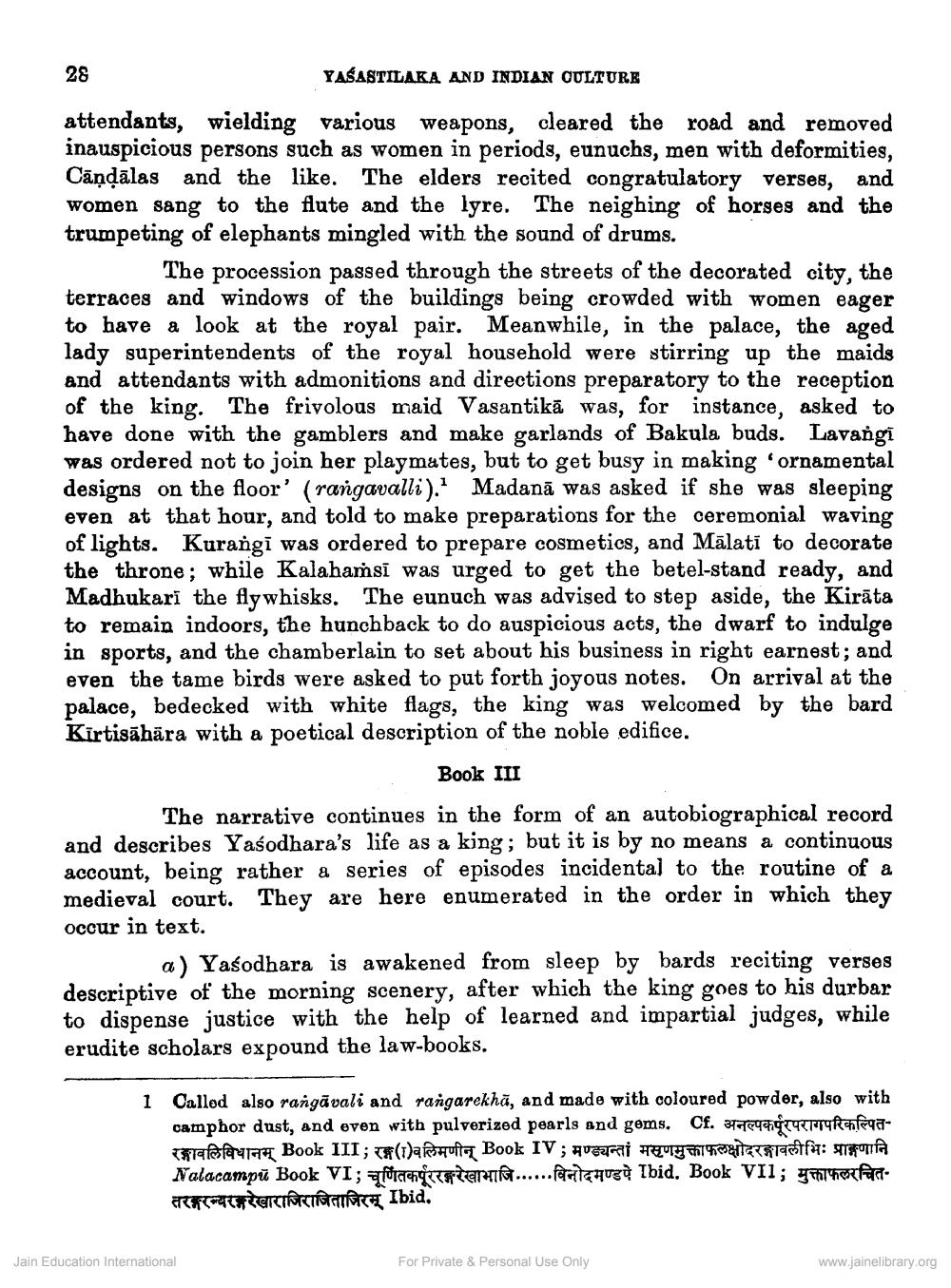________________
YASASTILAKA AND INDIAN CULTURE
attendants, wielding various weapons, cleared the road and removed inauspicious persons such as women in periods, eunuchs, men with deformities, Caṇḍālas and the like. The elders recited congratulatory verses, and women sang to the flute and the lyre. The neighing of horses and the trumpeting of elephants mingled with the sound of drums.
28
The procession passed through the streets of the decorated city, the terraces and windows of the buildings being crowded with women eager to have a look at the royal pair. Meanwhile, in the palace, the aged lady superintendents of the royal household were stirring up the maids and attendants with admonitions and directions preparatory to the reception of the king. The frivolous maid Vasantika was, for instance, asked to have done with the gamblers and make garlands of Bakula buds. Lavangi was ordered not to join her playmates, but to get busy in making 'ornamental designs on the floor' (rangavalli).1 Madana was asked if she was sleeping even at that hour, and told to make preparations for the ceremonial waving of lights. Kurangi was ordered to prepare cosmetics, and Malati to decorate the throne; while Kalahamsi was urged to get the betel-stand ready, and Madhukari the flywhisks. The eunuch was advised to step aside, the Kirāta to remain indoors, the hunchback to do auspicious acts, the dwarf to indulge in sports, and the chamberlain to set about his business in right earnest; and even the tame birds were asked to put forth joyous notes. On arrival at the palace, bedecked with white flags, the king was welcomed by the bard Kirtisähära with a poetical description of the noble edifice.
Book III
The narrative continues in the form of an autobiographical record and describes Yasodhara's life as a king; but it is by no means a continuous account, being rather a series of episodes incidental to the routine of a medieval court. They are here enumerated in the order in which they occur in text.
a) Yasodhara is awakened from sleep by bards reciting verses descriptive of the morning scenery, after which the king goes to his durbar to dispense justice with the help of learned and impartial judges, while erudite scholars expound the law-books.
1 Called also rangāvali and rangarekha, and made with coloured powder, also with camphor dust, and even with pulverized pearls and gems. Cf. feqaरङ्गावलिविधानम् Book III; रङ्ग (1) लिमणीन् Book IV ; मण्ड्यन्तां मसृणमुक्ताफलक्षोदरङ्गावलीभिः प्राङ्गणानि Natacampū Book VI; चूर्णितकर्पूररङ्ग रेखाभाजि ......विनोदमण्डपे Ibid. Book VIl; मुक्ताफलरचिततरङ्गरन्यरङ्गरेखाराजिराजिताजिरम् Ibid.
Jain Education International
For Private & Personal Use Only
www.jainelibrary.org




